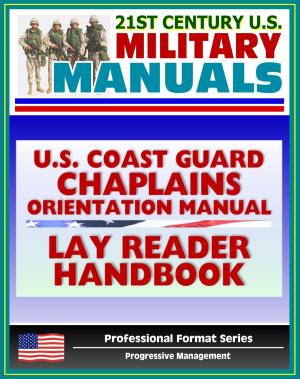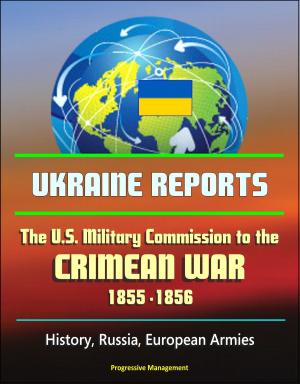The Role of Rhetorical Theory in Military Intelligence Analysis: A Soldier's Guide To Rhetorical Theory - Panopticon, Discourse Hierarchy, Clausewitz, Foucault, Discontinuity Fever, Process
Nonfiction, History, Military, United States| Author: | Progressive Management | ISBN: | 9781310094125 |
| Publisher: | Progressive Management | Publication: | October 7, 2014 |
| Imprint: | Smashwords Edition | Language: | English |
| Author: | Progressive Management |
| ISBN: | 9781310094125 |
| Publisher: | Progressive Management |
| Publication: | October 7, 2014 |
| Imprint: | Smashwords Edition |
| Language: | English |
As an unconventional analytical source, Michel Foucault contributes new power perspectives to intelligence analysis; and he gives a nontraditional look at a growing, evolving threat environment. As highlighted in The Foucault Reader, Foucault's analytical edge confronts these threats "by refusing to separate off knowledge from power." "His strategy has been to focus his work, both political and intellectual, on what he sees as the greatest threat—that strange, somewhat unlikely, mixing of the social science and social practices developed around subjectivity." Foucault's theories address the human behind the satellite images and database numbers: the result generates a powerful perspective on threat countries, systems, and situations.
His power influences resonate in every human system and organization. Specifically, he addresses the flow of power through organizational hierarchies. Through Foucault's rhetorical vision, one can look at an organization as a power being with a rhetorical circulatory structure supporting its existence. Power (discourse and knowledge) flows through the entire organization. Now, as a power-influenced (human-conceptualized) entity, organizations have spatial, temporal, and social compartmentalizations. These compartmentalizations require a physical means (conduits) of sharing information in order to allow power to flow. Additionally, Foucault addresses—in the 1982 book titled The Archaeology of Knowledge and the Discourse on Language—how the power shifts, ruptures, and discontinuities in the conduits can take on many forms when overlaid against the wide range of global norms. Most importantly, based on theory's powerful utility, the seeds of analysis must be planted as early as possible. Rhetorical theory is the key to enhanced analytical growth—an outgrowth that serves as a powerful military-intelligence force multiplier.
The purpose of The Role of Rhetorical Theory in Military Intelligence Analysis is to share Major Mills' rhetorical understanding with young officers attending initial intelligence training. Throughout he infuses key elements from the rhetorical discourse community into the discourse community that deals with training in military intelligence. Major Mills notes that his target audience is the military intelligence community. Many aspects of The Role of Rhetorical Theory in Military Intelligence Analysis can enhance the rhetorical analysis of traditional university students and instructors.
The Role of Rhetorical Theory in Military Intelligence Analysis: A Soldier's Guide to Rhetorical Theory - CHAPTER 1 - INTRODUCTION * CHAPTER 2 - LET'S GET RHETORICAL * CHAPTER 3 - INTELLIGENCE PROCESS * CHAPTER 4 - [WHAT THE] FOUCAULT? * CHAPTER 5 - POWER PLUG * CHAPTER 6 - DISCONTINUITY FEVER * CHAPTER 7 - IN THE TRENCHES * CHAPTER 8 - CONCLUSION
As an unconventional analytical source, Michel Foucault contributes new power perspectives to intelligence analysis; and he gives a nontraditional look at a growing, evolving threat environment. As highlighted in The Foucault Reader, Foucault's analytical edge confronts these threats "by refusing to separate off knowledge from power." "His strategy has been to focus his work, both political and intellectual, on what he sees as the greatest threat—that strange, somewhat unlikely, mixing of the social science and social practices developed around subjectivity." Foucault's theories address the human behind the satellite images and database numbers: the result generates a powerful perspective on threat countries, systems, and situations.
His power influences resonate in every human system and organization. Specifically, he addresses the flow of power through organizational hierarchies. Through Foucault's rhetorical vision, one can look at an organization as a power being with a rhetorical circulatory structure supporting its existence. Power (discourse and knowledge) flows through the entire organization. Now, as a power-influenced (human-conceptualized) entity, organizations have spatial, temporal, and social compartmentalizations. These compartmentalizations require a physical means (conduits) of sharing information in order to allow power to flow. Additionally, Foucault addresses—in the 1982 book titled The Archaeology of Knowledge and the Discourse on Language—how the power shifts, ruptures, and discontinuities in the conduits can take on many forms when overlaid against the wide range of global norms. Most importantly, based on theory's powerful utility, the seeds of analysis must be planted as early as possible. Rhetorical theory is the key to enhanced analytical growth—an outgrowth that serves as a powerful military-intelligence force multiplier.
The purpose of The Role of Rhetorical Theory in Military Intelligence Analysis is to share Major Mills' rhetorical understanding with young officers attending initial intelligence training. Throughout he infuses key elements from the rhetorical discourse community into the discourse community that deals with training in military intelligence. Major Mills notes that his target audience is the military intelligence community. Many aspects of The Role of Rhetorical Theory in Military Intelligence Analysis can enhance the rhetorical analysis of traditional university students and instructors.
The Role of Rhetorical Theory in Military Intelligence Analysis: A Soldier's Guide to Rhetorical Theory - CHAPTER 1 - INTRODUCTION * CHAPTER 2 - LET'S GET RHETORICAL * CHAPTER 3 - INTELLIGENCE PROCESS * CHAPTER 4 - [WHAT THE] FOUCAULT? * CHAPTER 5 - POWER PLUG * CHAPTER 6 - DISCONTINUITY FEVER * CHAPTER 7 - IN THE TRENCHES * CHAPTER 8 - CONCLUSION















